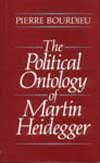
Philosophy of mind
Source: Wikipedia. Pages: 150. Chapters: Consciousness, Philosophy of perception, Meme, Mind, Mental event, Reincarnation, Rationality, Synchronicity, Sentience, Sapience, Conscience, Qualia, Tulpa, Simulated reality, Philosophy of artificial intelligence,... Viac o knihe
Produkt je dočasne nedostupný
30.10 €
bežná cena: 34.20 €
O knihe
Source: Wikipedia. Pages: 150. Chapters: Consciousness, Philosophy of perception, Meme, Mind, Mental event, Reincarnation, Rationality, Synchronicity, Sentience, Sapience, Conscience, Qualia, Tulpa, Simulated reality, Philosophy of artificial intelligence, Uncanny valley, Direct and indirect realism, Neural correlates of consciousness, Interpretation, Introspection illusion, Moral psychology, Other, Externalism, Supervenience, Intentionality, Hallucinations in the sane, Problem-based learning, Thoughtform, Folk psychology, Five wisdoms, Digital philosophy, Object of the mind, Duration, Direction of fit, Third eye, Autopoiesis, Spatial visualization ability, Intersubjectivity, Propositional attitude, Pluralism, Enactivism, Intersubjective verifiability, Psyche, Triangle of reference, Aboutness, Divided consciousness, Philosophy of psychology, Energy, Pain, Brain dump, Neurophilosophy, Specious present, Subpersonality, Bridge locus, Concept and object, Memeplex, Meta-emotion, Mind extension, Privileged access, Medical gaze, Index of philosophy of mind articles, Passive intellect, Psychic apparatus, Mental property, Mental world, Metameme, Anupadaka. Excerpt: Conscience is an aptitude, faculty, intuition, or judgment of the intellect that distinguishes right from wrong. Moral evaluations of this type may reference values or norms (principles and rules). In psychological terms conscience is often described as leading to feelings of remorse when a human commits actions that go against his/her moral values, and to feelings of rectitude or integrity when actions conform to such norms. The extent to which conscience informs moral judgment before an action and whether such moral judgments are, or should be, based wholly in reason has occasioned debate through much of the history of Western philosophy. Religious views of conscience usually see it as linked to a morality inherent in all humans, to a beneficent universe and/or to divinity. The diverse ritualistic, mythical, doctrinal, legal, institutional and material features of religion, may not necessarily cohere with experiential, emotive, spiritual or contemplative considerations about the origin and operation of conscience. Common secular or scientific views regard the capacity for conscience as probably genetically determined, with its subject matter probably learned, or imprinted (like language) as part of a culture. Commonly used metaphors for conscience include the "voice within" and the "inner light". Conscience, as is detailed in sections below, is a major concept in national and international law, is increasingly conceived of as applying to the world as a whole, has motivated numerous notable acts for the public good and been the subject of many prominent examples of literature, music and film. Although humanity has no generally accepted definition of conscience or universal agreement about its role in ethical decision-making, three overlapping approaches have significantly addressed these issues: Seated Buddha, Gandhara, 2nd century CE. The Buddha linked conscience with compassion for those who must endure cravings and suffering in the world until right conduct culm
- Vydavateľstvo: Books LLC, Reference Series
- Formát: Paperback
- Jazyk:
- ISBN: 9781157527428


 Anglický jazyk
Anglický jazyk 






 Ruský jazyk
Ruský jazyk 


